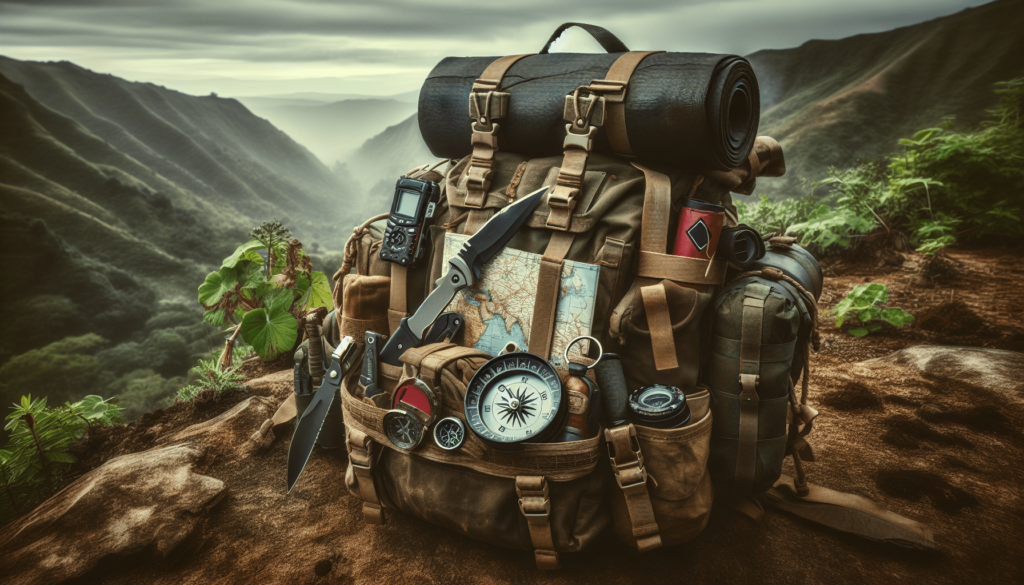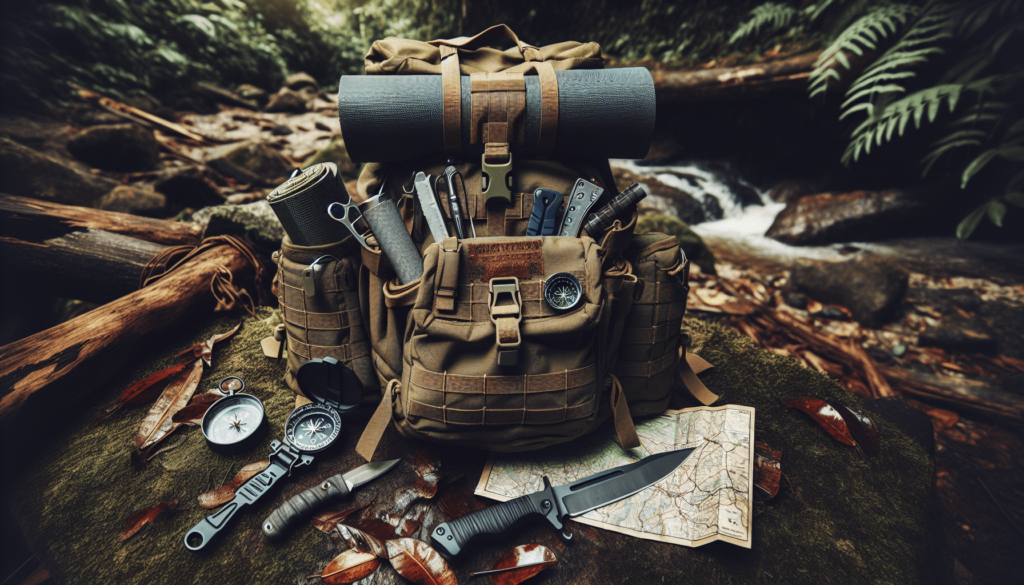
Have you ever wondered what drives someone to call themselves a survivalist?

The Survivalist Mindset
When I hear the term “survivalist,” the first thing I picture is a rugged individual, clad in camo, clutching a Swiss army knife. But there’s so much more to it than a penchant for camouflage and a keen interest in knife-throwing. At its core, being a survivalist is about having a mindset that’s always thinking ahead, ready to adapt, and eager to thrive in the face of whatever life—or nature—throws one’s way.
Survivalists are, in many ways, the ultimate pragmatists. They’re well aware that despite modern conveniences, the world is unpredictable. It could be a natural disaster, economic collapse, or just an unfortunate day trip turned awry; for them, being unprepared simply isn’t an option. But does this make them paranoid, or just proactive? That’s a question worth pondering.
Skills and Knowledge
The ability to light a fire with nothing but sticks and a sense of determination might sound like something out of “Castaway,” but for survivalists, it’s just another skill in their ever-growing toolkit. But what really sets them apart isn’t just skill; it’s the knowledge and understanding of when and where to apply it. Let’s break down some essential skills that make a survivalist:
-
Shelter Construction: Knowing how to create a safe abode out of nothing but the surrounding environment is crucial. Rain, wind, or biting cold, every survivalist needs a cozy spot to call home—even if just for the night.
-
Foraging and Food Procurement: Ever watch someone nonchalantly munch on a root and wonder if they’ve lost their minds? Chances are, they’re just a survivalist who knows more about local flora than the average neighborhood botanist.
| Skill | Description |
|---|---|
| Shelter Building | Constructing a safe, warm place to rest |
| Fire Starting | Creating fire using natural materials |
| Foraging | Identifying edible plants and berries |
| Water Purification | Ensuring safe drinking water |
| Navigation | Using the sun, stars, or a map and compass |
| First Aid | Treating wounds and illnesses without modern medicine |
It’s like having a Swiss army knife in your brain rather than your back pocket.
The Gear Obsession
Let’s be honest. Walk into any survivalist’s den, and you’ll likely find enough gear to outfit a small army—or at least an impressive episode of “Survivor.” From paracords to tactical hats, the obsession with equipment sometimes seems endless. Is every single piece of gear necessary? Maybe not. But there’s a deeper psychology at play here.
For many, the gear symbolizes readiness and self-reliance. Imagine the comfort found in knowing you have the exact right tool for whatever challenge arises. It’s the adult equivalent of having your blanket fortress and plush companions ready during a childhood thunderstorm.
The Community Aspect
While survivalists might seem like lone wolves, the reality is there’s often a deeply communal aspect to the lifestyle. Many find connection and camaraderie with fellow enthusiasts who share similar values. There’s a certain unspoken bond formed through recounting near-miss encounters with bears or participating in survival courses. It’s not just about surviving alone but thriving together.
Consider the numerous forums, meet-up groups, and clubs dedicated to sharing tips, experiences, and new skills. It turns out, even the toughest survivalist appreciates a little human contact from time to time.

The Origins of the Survivalist Movement
To understand why someone becomes a survivalist, it’s insightful to peek into the history and origins of the movement. It didn’t just appear out of nowhere; it’s a concept deeply entrenched in human history. From our ancestors who had to hunt and gather for daily survival to more contemporary movements driven by fear of political and economic instability in the 20th century, the evolution is fascinating.
In many ways, the modern survivalist can trace their roots back to cold war fears and the emergence of “prepper” culture, where the focus was primarily on being ready for large-scale disasters or conflicts. Over time, it morphed into more of a lifestyle—a blend of resilience, skill mastery, and philosophical self-sufficiency.
Philosophy and Beliefs
Many survivalists share a certain philosophy or set of beliefs about the world. These beliefs often center around self-reliance, skepticism of modern conveniences, and a deep respect for nature. There’s an understanding that while technology is great, it shouldn’t be something upon which we are entirely dependent.
This ideology isn’t about living in fear but rather embracing a form of freedom. It’s liberating to feel that, even if our phones die or the grocery store runs out of bread, life goes on. There’s something profoundly empowering about knowing you can handle whatever is thrown your way with grace and a well-packed bug-out bag.
Psychological Motivation
Understanding the psychological motivation behind why someone might embrace the survivalist lifestyle provides intriguing insights. It often goes beyond simply anticipating disaster. For some, it’s a form of therapy or meditation—a way to cope with anxiety by feeling in control.
The lifestyle might offer escape from modern demands, creating a way to connect with a simpler, more primal part of oneself. Remember, there’s an undeniable thrill in going back to basics, in challenging oneself, and in truly appreciating the marvels of nature without the filter of Instagram.
Preparing for the Unforeseen
Preparation is at the heart of every survivalist. This isn’t just about storing canned beans and toilet paper. It’s about developing a comprehensive plan and testing it regularly. Here’s a nugget of wisdom they’ve internalized: plans only work as far as they’re used. For a survivalist, practice isn’t about making perfect—it’s about affirming, recalibrating, and innovating.
In this preparation lies contemplation: what might we face, and how can we prepare appropriately but not obsessively? For some, it’s preparing for natural disasters if they’re in prone areas, like hurricanes or earthquakes. For others, it’s being ready for social or economic instabilities. The motivations vary as widely as the plans themselves.
Balancing Act with Modern Life
So how does one balance being a survivalist with the demands of modern life? In truth, it’s really no different than any other hobby or interest. The same way someone might find time for yoga, knitting, or gaming, survivalists carve out time to learn, practice, and hone their skills. They might even incorporate their preparedness into everyday tasks effortlessly.
It’s not all about disconnecting but finding harmony between conventional living and the values of preparedness. Many proudly hold a nine-to-five job while spending weekends camping, attending survival workshops, or testing gear. The blend is less dual-life secretive than embracing a full-spectrum perspective.
Debunking Myths and Stereotypes
Understandably, there are a lot of myths and stereotypes surrounding survivalists. Movies and media sometimes portray them in extreme lights—like they’re all doomsayers waiting for society to crumble. The reality, not surprisingly, is far more nuanced.
Most survivalists are regular folks you meet on the street, who just happen to think a bit more about the “what-ifs” of life. They’re not sitting in bunkers with a perpetual canned-goods diet but are thriving with one foot ready and one still enjoying everyday pleasures.
What’s the Ultimate Goal?
After all is said and done, the question remains: what’s the ultimate goal of a survivalist? For many, it’s about achieving peace of mind and being able to say, with conviction, “I’ve got this,” regardless of the situation. It’s about living meaningfully, driven by personal responsibility and empowerment.
The world is an unpredictable place, but survivalists find beauty in that unpredictability. While not everyone may choose to become one, understanding what makes someone embrace this lifestyle reveals this beautiful intersection of human intuition, ingenuity, and spirit. So next time, when I light a fire with sticks while everyone else fiddles with damp matches, I’ll know it’s not just a skill—it’s a testament to adaptability and grit.
And that, my friends, is what makes someone a survivalist.
